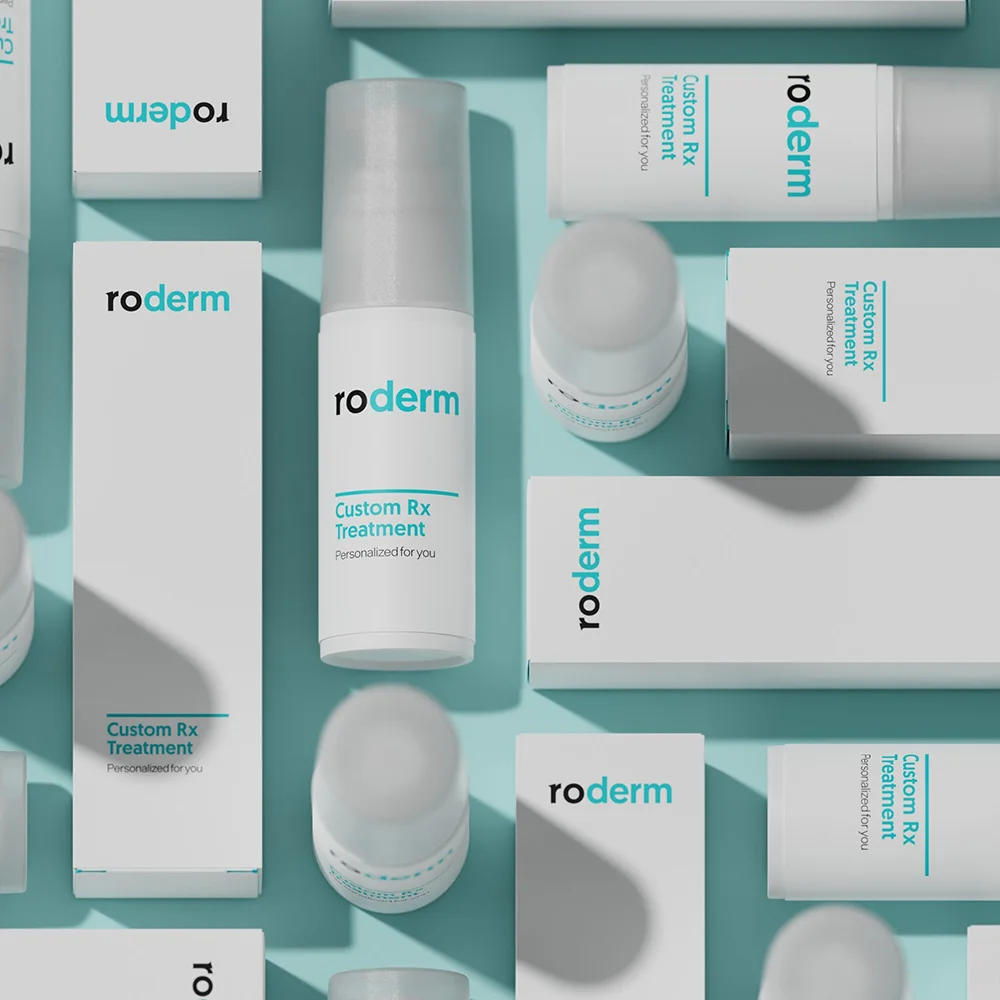Here's what we'll cover
Here's what we'll cover
Here's what we'll cover
If you’ve walked through your local grocery store lately, you’ve likely stumbled upon products that contain hydrolyzed collagen.
This broken-down form of collagen (also referred to as collagen peptides) has been touted for a range of health benefits like improving skin, nail, and joint health. Are these claims true? And how exactly is hydrolyzed collagen made? Keep reading to learn more about this popular supplement.
What is hydrolyzed collagen?
To understand what hydrolyzed collagen is, let’s take a step back and talk about collagen first.
Collagen is the most abundant protein in the bodies of mammals. It’s in your skin, bones, teeth, and cartilage. Hydrolyzed collagen is collagen that has been broken down into smaller molecules called peptides that are easier for your body to absorb. This is why hydrolyzed collagen can also be called collagen peptides.
Your body’s collagen production decreases as you get older. Some people turn to supplements and products that contain hydrolyzed collagen peptides to reap potential beneficial effects of collagen, like reduced skin aging and joint pain.
Where does hydrolyzed collagen come from?
Collagen dietary supplements usually come from other animals besides humans. Hydrolyzed bovine collagen is one of the most common types found in supplements. It comes from the bones and tendons of cows (León-López, 2019).
There are also collagen peptides made from pig byproducts and marine collagen peptides made from the bones, skin, and scales of fish (León-López, 2019).
Other sources of hydrolyzed collagen include (León-López, 2019):
Sheep tendons and skin
Chicken skin and cartilage
Rabbit and duck skin
While animals were once the primary source of collagen, collagen can now be made from bacteria. This means that collagen supplements can be vegetarian as well (Yu, 2014).
Collagen benefits
A lot of research has shown benefits to taking collagen supplements, especially anti-aging benefits. In fact, one of the most well-established health benefits of collagen is having healthier and more youthful-looking skin (Aguirre-Cruz, 2020; Lupu, 2020).
In clinical studies, people taking collagen had fewer wrinkles and visible pores. Their skin was also thicker and less dry, and it had more elasticity (Aguirre-Cruz, 2020; Lupu, 2020).
Other potential benefits of the use of collagen, besides improved skin health, include (Lupu, 2020):
Faster-growing nails
Faster wound healing (Chen, 2019)
Beneficial effects on cellulite
More muscle strength (Oertzen-Hagemann, 2019)
Types of hydrolyzed collagen supplements
Not all types of collagen for sale are hydrolyzed. You can also get collagen that is undenatured (raw chicken cartilage) or from gelatin (cooked animal collagen). Check labels to see what kind of collagen you’re buying.
Here are some other formulations of hydrolyzed collagen you may find in stores or online:
Liquid collagen: Liquid collagen is collagen peptides floating in liquid. This form of hydrolyzed collagen has been less studied than collagen in pill and powder form.
Pills: Hydrolyzed collagen in pills and tablets has been studied extensively and is very commonly sold.
Powder: Collagen powder is typically sold in tubs and is available at most grocery and health food stores. The powders can be unflavored, or they can come in various flavors so that people can add them to their morning coffees or daily smoothies.
Topical: Many cosmetic companies sell collagen as a lotion or gel to be used as part of your skincare routine. This form of delivery may improve skin health (Aguirre-Cruz, 2020).
Do collagen supplements work?
Collagen peptide supplementation can work for some people. But it’s not a cure-all or a miracle drug.
For example, it can help smoothen the skin and decrease dimpling in areas of the skin affected by cellulite (Schunck, 2015). However, the effects may depend on each individual, as researchers have noted that some people have more improvement in their skin than others (Maia Campos, 2021).
Can you take too much collagen?
Hydrolyzed collagen is mostly safe and nontoxic, but side effects such as mild to moderate nausea or other digestive issues have been observed (Van Vijven, 2012).
Because collagen is a dietary supplement, the Food and Drug Administration (FDA) doesn’t regulate it like medications, so the labels may not be totally accurate. You may not know how many servings of collagen are in a given powder or pill.
You should start by taking only the amount of collagen recommended by the manufacturer and ask a healthcare provider if you have any questions or experience any side effects.
It is also possible to be allergic to a collagen supplement, so it’s important to pay attention to how your body feels after taking any new supplement.
Should I take collagen?
If you want to, yes! Collagen supplements are quite safe to take, and there is potential for beneficial effects. If you have an allergy to the animal source of a collagen supplement, you may want to avoid it, and if you have unpleasant effects, you can talk to your healthcare provider or discontinue use.
A collagen supplement could potentially help keep your joints, bones, nails, and skin healthy and have beneficial effects on muscle strength. Its potential anti-aging properties may even help you look younger and increase your skin’s elasticity (Oertzen-Hagemann, 2019; Lupu, 2020).
DISCLAIMER
If you have any medical questions or concerns, please talk to your healthcare provider. The articles on Health Guide are underpinned by peer-reviewed research and information drawn from medical societies and governmental agencies. However, they are not a substitute for professional medical advice, diagnosis, or treatment.
References
Aguirre-Cruz, G., León-López, A., Cruz-Gómez, V., et al. (2020). Collagen hydrolysates for skin protection: oral administration and topical formulation. Antioxidants (Basel, Switzerland) , 9 (2), 181. doi:10.3390/antiox9020181. Retrieved from https://www.mdpi.com/2076-3921/9/2/181/htm
Chen, J., Gao, K., Liu, S., et al. (2019). Fish Collagen Surgical Compress Repairing Characteristics on Wound Healing Process In Vivo. Marine Drugs , 17 (1), 33. doi:10.3390/md17010033. Retrieved from https://www.mdpi.com/1660-3397/17/1/33
León-López, A., Morales-Peñaloza, A., Martínez-Juárez, V. M., et al. (2019). Hydrolyzed collagen-sources and applications. Molecules (Basel, Switzerland) , 24 (22), 4031. doi:10.3390/molecules24224031. Retrieved from https://www.mdpi.com/1420-3049/24/22/4031/htm
Lupu, M. A., Gradisteanu Pircalabioru, G., Chifiriuc, et al. (2020). Beneficial effects of food supplements based on hydrolyzed collagen for skin care (Review). Experimental and Therapeutic Medicine , 20 (1), 12–17. doi:10.3892/etm.2019.8342. Retrieved from https://www.ncbi.nlm.nih.gov/pmc/articles/PMC7271718
Maia Campos, P., Franco, R., Kakuda, L., et al. (2021). Oral Supplementation with hydrolyzed fish cartilage improves the morphological and structural characteristics of the skin: a double-blind, placebo-controlled clinical study. Molecules (Basel, Switzerland) , 26 (16), 4880. doi:10.3390/molecules26164880. Retrieved from https://www.mdpi.com/1420-3049/26/16/4880/htm
Oertzen-Hagemann, V., Kirmse, M., Eggers, B., et al. (2019). Effects of 12 weeks of hypertrophy resistance exercise training combined with collagen peptide supplementation on the skeletal muscle proteome in recreationally active men. Nutrients , 11 (5), 1072. doi:10.3390/nu11051072. Retrieved from https://www.ncbi.nlm.nih.gov/pmc/articles/PMC6566884
Schunck, M., Zague, V., Oesser, S., et al. (2015). Dietary supplementation with specific collagen peptides has a body mass index-dependent beneficial effect on cellulite morphology. Journal of Medicinal Food , 18 (12), 1340–1348. https://doi.org/10.1089/jmf.2015.0022. Retrieved from https://www.ncbi.nlm.nih.gov/pmc/articles/PMC4685482
Van Vijven, J. P., Luijsterburg, P. A., Verhagen, A. P., et al. (2012). Symptomatic and chondroprotective treatment with collagen derivatives in osteoarthritis: a systematic review. Osteoarthritis and Cartilage , 20 (8), 809–821. doi:10.1016/j.joca.2012.04.008. Retrieved from https://www.oarsijournal.com/article/S1063-4584(12)00786-8/fulltext
Yu, Z., An, B., Ramshaw, J. A., et al. (2014). Bacterial collagen-like proteins that form triple-helical structures. Journal of Structural Biology , 186 (3), 451–461. doi:10.1016/j.jsb.2014.01.003. Retrieved from https://www.ncbi.nlm.nih.gov/pmc/articles/PMC4096566












